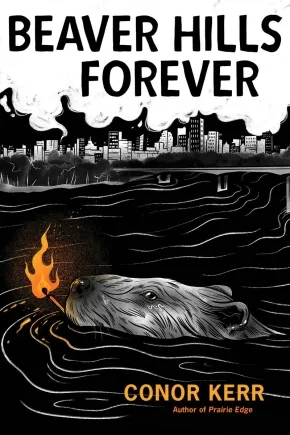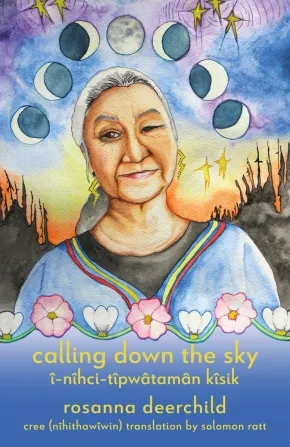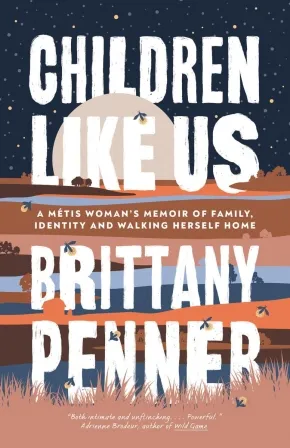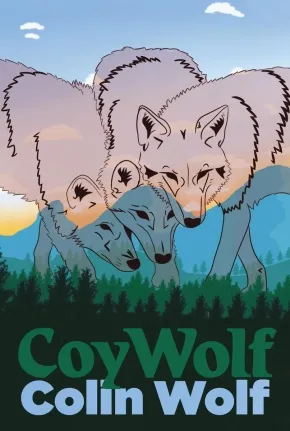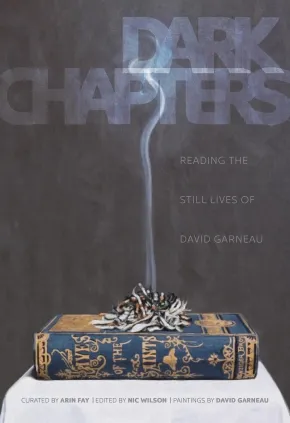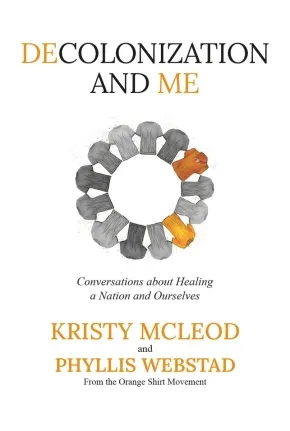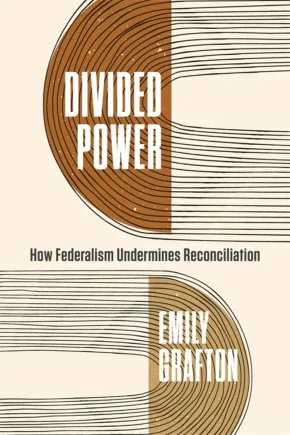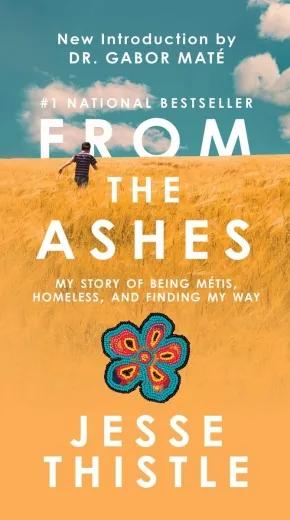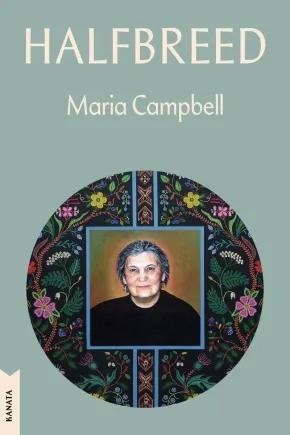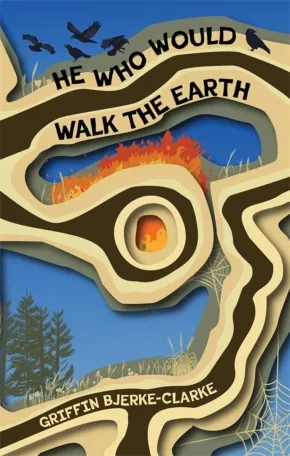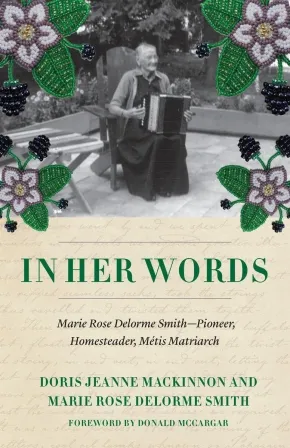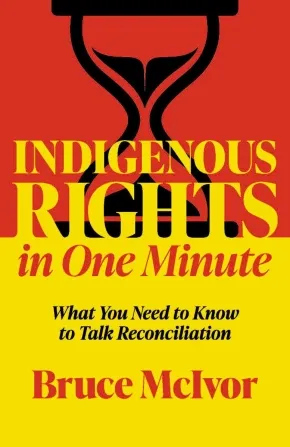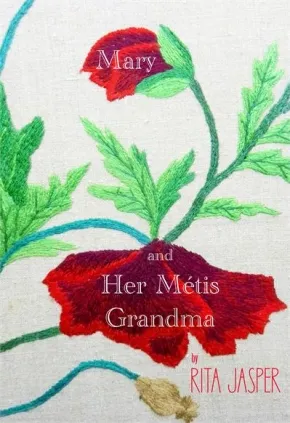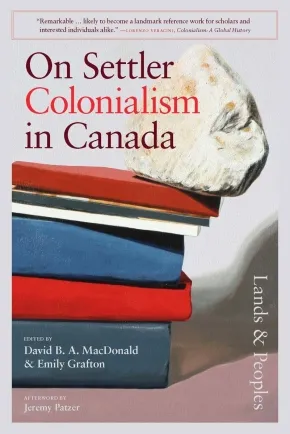
Métis
1
-
15
of
212 Results;
Sort By
Go To
of 15
FLASH SALE! Elements of Indigenous Style: A Guide for Writing By and About Indigenous Peoples - 2nd Edition
$20.97 $27.95
Editors:
Format:
Paperback
Text Content Territories:
Indigenous Canadian;
Reading Level: N/A
ISBN / Barcode: 9781550599459
Synopsis:
Synopsis:
The groundbreaking Indigenous style guide every writer needs.
The first published guide to common questions and issues of Indigenous style and process for those who work in words and other media is back in an updated new edition. This trusted resource offers crucial guidance to anyone who works in words or other media on how to work accurately, collaboratively, and ethically on projects involving Indigenous Peoples.
Editor Warren Cariou (Métis) and contributing editors Jordan Abel (Nisga’a), Lorena Fontaine (Cree-Anishinaabe), and Deanna Reder (Cree-Métis) continue the conversation started by the late Gregory Younging in his foundational first edition. This second conversation reflects changes in the publishing industry, Indigenous-led best practices, and society at large, including new chapters on author-editor relationships, identity and community affiliation, Two-Spirit and Indigiqueer identities, sensitivity reading, emerging issues in the digital world, and more.
This guide features:
- Twenty-two succinct style principles.
- Advice on culturally appropriate publishing practices, including how to collaborate with Indigenous Peoples, when and how to seek the advice of Elders, and how to respect Indigenous Oral Traditions and Traditional Knowledge.
- Terminology to use and to avoid.
- Advice on specific editing issues, such as biased language, capitalization, citation, accurately representing Indigenous languages, and quoting from historical sources and archives.
- Examples of projects that illustrate best practices.
Additional Information
208 pages | 5.50" x 7.50" | Paperback
Beaver Hills Forever: A Metis Poetic Novella
$21.95
Format:
Paperback
Text Content Territories:
Indigenous Canadian; Métis;
Reading Level: N/A
ISBN / Barcode: 9781834050089
Synopsis:
Synopsis:
An irreverent and playful novella of Metis voices that reflects the complexities of contemporary prairie life
Conor Kerr's 2024 novel Prairie Edge was a finalist for both the Giller Prize and the Atwood Gibson Writers' Trust of Canada Fiction Prize. His latest book, Beaver Hills Forever, takes a riotous, uncompromising look at the intertwined lives of four characters, each an abstract expression of the few paths available to Metis people on the Prairies. In alternating poetic verses, Buddy, Baby Momma, Fancy University Boy, and Aunty Prof share their inner dreams, hardships, delusions of grandeur, and existential plights. While the messy day-to-day is created by their own doing, the lives of these four individuals are doubly compromised by Canada's colonial education system and resource extraction industries.
A beguiling and genre-bending work, Beaver Hills Forever offers a moving, necessary exploration of education, labour, and the dynamic, ever-changing bonds that bring us back to each other. Here is a diverse, funny, pitch-perfect chorus of voices that rings loud and true over the wide prairie landscape.
Reviews
"Not every Metis kid / Needs a sad story," says a character in Conor Kerr's propulsive and deeply entertaining new work, where each bone-clean sentence holds a galaxy of stories in its marrow. Kerr is part of a vital contemporary movement that is reimagining what our literatures can be and what they can do. Beaver Hills Forever is a reminder that laughter and passion are as much a part of the narrative as struggle. In these pages, you'll find voices that demand to be heard, felt, and remembered." — Carleigh Baker, author of Last Woman and Bad Endings
"Much like his prose, Conor Kerr's Beaver Hills Forever imbues the language of everyday Indigenous life with a poetic charm that is just incredibly readable and relatable. This book is truly multitudinous: a love story, an anti-love story, a critique of neoliberalism, an ode to the Prairies, and, above all, proof that even our smallest desires are worthy of sustained poetic consideration." — Billy-Ray Belcourt, author of Coexistence
"Beaver Hills Forever is full of raunch and riot. Conor Kerr's ability to gravitate around the embodied truths of institutional whiteness, class, settler colonization, and the Indigenous (Metis) experience in the moraine of amiskwaciy is rebellious in its desire to not pathologize or rationalize the violent backdrops of its animate setting. With his skilled hand, Kerr makes sure there is "room for [all] in the digital economy of the Future." — Joshua Whitehead, author of Jonny Appleseed
"Aho, fancy reader! Welcome to Conor Kerr's Beaver Hills Forever. We'll laugh, we'll cry. We'll smoke, we'll die. Etc, etc. Beaver Hills Forever is funny, heartfelt, poetic, badass. It's Bald Boy, Goodbye, Sad Story, Indigenous Canon. Etc, etc. Magpie cackles, Metis literatures, Aunty Prof wonders, realizes, smudges, feel-good energy. Fuck all the ongoing bullshit internal politics and academic distortion and just hear the truth, etc, etc." — Jordan Abel, author of Empty Spaces and NISHGA
Additional Information
88 pages | 6.00" x 9.00" | Paperback
Calling Down the Sky: Tenth Anniversary Edition
$24.95
Text Content Territories:
Indigenous Canadian; Métis; Inuit; First Nations;
ISBN / Barcode: 9781552455159
Synopsis:
Synopsis:
A tenth anniversary bilingual edition in English and Cree of Rosanna Deerchild’s stunning collection about the intergenerational impacts of the Canadian residential school system.
you want me to
share my story
ok then
here it is
here in the unwritten
here in the broken lines
of my body that can never forget
In Calling Down the Sky, poet Rosanna Deerchild viscerally evokes her mother’s experience within the residential school system, the Canadian government’s system of violently removing Indigenous children from their homes, families, and languages in an explicit attempt to destroy Indigenous cultures and identities. With precise and intricate poetry, Deerchild weaves together the story of her mother’s childhood and Deerchild’s memories of her mother: her love of country music, her attempts to talk about what happened to her, how tightly she braided her daughter’s hair on the first day of school. In doing so, Deerchild illustrates the disruptive and devastating impacts of the residential school system on generations of families while also celebrating the life and culture of her mother and other survivors.
Published for the first time in a bilingual edition of Cree and English, in time for the tenth anniversary of the original publication, Calling Down the Sky is an intimate and gorgeously evoked reckoning with a horrifying part of North American history.
Reviews
“Rosanna Deerchild’s poems roll off the tongue as easy as old country songs. With her deft hand, Deerchild finely tunes every word and weaves them together as intimately as she braids her girls’ hair. Together, these poems create a story that sings with beautiful tension, amazing resilience, and love as big as the sky." - Katherena Vermette, Métis Writer
"The poetry collection, called calling down the sky, describes personal experiences with the residential school system in the 1950s and the generational effects it had." - CBC
"This poetry collection is fierce, raw and candid. It is also visceral, intricate and, above all, illuminating. By recounting her mother’s residential school experience in a powerfully poetic narrative, Deerchild expertly illustrates the heartbreaking trauma of that tragic saga and how it complicates relationships over generations. By beautifully and elaborately exploring those relationships and that devastating history, she finds and celebrates the resilient and hopeful spirit that many residential school survivors, like her mother, have managed to retain in the face of horror and torment. As a result, calling down the sky is an essential read in understanding the true modern history of this land and in honouring the people who survived it.” - Waubgeshig Rice
Educator Information
Bilingual: English and Cree
Additional Information
96 pages | 5.50" x 8.50"
Children Like Us: A Métis Woman's Memoir of Family, Identity and Walking Herself Home
$26.00
Format:
Paperback
Text Content Territories:
Indigenous Canadian; Métis;
Reading Level: N/A
ISBN / Barcode: 9780385688000
Synopsis:
Synopsis:
A Métis girl is adopted by a Mennonite family in this breathtaking memoir about family lost and found—for those who loved From the Ashes and Educated.
By the time Brittany Penner is seven years old, she has loved and lost twenty-one foster siblings who have come into her family and left—all of them Indigenous like her. "When will it be my turn?" she asks her mother time and time again. "When will I be taken away?" You won't be, she is told. You're adopted. You're here to stay. You're the lucky one.
On the day of her birth in 1989, near the end of the Sixties Scoop, Brittany was relinquished into the care of the government and adopted by a white Mennonite family in a small prairie town. Her name and where she came from are hidden from her; all she is told is that she is Métis. Her childhood is shaped by church, family, service and silence. Her family is continuously shifting as siblings arrive and depart, one by one. She knows that to stay, she has to force herself into the mold created for her. She must be obedient. Quiet. Good. No matter what.
Whenever she looks in the mirror, she searches her features, wondering if they've been passed down to her by her biological mother. She thinks, if she can find her mother, she'll find all the answers she's looking for. As Brittany moves into adulthood, she will uncover answers—but they will be more tangled than she could have imagined.
Children Like Us asks difficult questions about family, identity, belonging and cultural continuity. What happens when you find what you're looking for, but it can't offer you everything you need? How do you reckon with the truth of your own story when you've always been told you're lucky and should be grateful? What does it mean to belong when you feel torn between cultures? And how does a person learn to hold the pain and the grief, as well as the triumphs, the joys and the beauty, allowing none to eclipse the others?
Reviews
"Children Like Us is a luminous memoir about identity, loss and belonging. Adopted at birth by a white Mennonite family, Brittany Penner grows up straddling two worlds—one she knows and one that remains just out of reach. As she pieces together her origins, she reckons with the complexities of family, love and cultural displacement. Both intimate and unflinching, Children Like Us is a powerful exploration of what it means to know where you come from—and what it costs when that knowledge is withheld." —Adrienne Brodeur, nationally bestselling author of Wild Game
"An absolutely mesmerizing debut. It was a privilege to bear witness to Brittany Penner's story about intergenerational trauma, identity, and belonging. The kinds of complicated grief we so often experience in life are born out of the complexity of human relationships and our fierce ability to both hurt and heal one another. Penner explores this truth deftly, with wisdom, compassion and grace. I hope everyone reads this book." —Claire Bidwell Smith, author of The Rules of Inheritance
Additional Information
384 pages | 5.62" x 8.25" | Paperback
CoyWolf
$18.95
Format:
Paperback
Text Content Territories:
Indigenous Canadian; Métis;
Reading Level: N/A
ISBN / Barcode: 9780369105738
Synopsis:
Synopsis:
Isidor, a half-coyote, half-wolf coywolf, has always struggled to find his place as a half-breed. After the untimely death of his mother, he leaves his community to roam across prairies, forests, and mountains, sharing stories in his search for kinship and belonging. But as Sharp-Tooths are increasingly policed, tagged, or killed to make way for insatiable human expansion, Isidor and his pack are forced to make impossible decisions. Do they retreat to better their chances of survival, or risk everything by joining a resistance of rogue animals to protect what’s left of their homeland?
In this gripping drama, Colin Wolf weaves a powerful allegory through the lives of animals, paralleling the displacement of Métis people and the enduring struggle for Indigenous land rights on Turtle Island. CoyWolf is a hopepunk thriller and a roadmap for young revolutionaries navigating the realities of resistance, doing your best, and learning the wisdom of those who have walked the path before.
Additional Information
112 pages | 5.12" x 7.62" | Paperback
Dark Chapters: Reading the Still Lives of David Garneau
$32.95
Artists:
Editors:
● Arin Fay
Format:
Paperback
Text Content Territories:
Indigenous Canadian; Métis;
ISBN / Barcode: 9781779400536
Synopsis:
Synopsis:
A singular collection of responses to the still life paintings of acclaimed artist David Garneau
Dark Chapters brings together 17 poets, fiction writers, curators, and critics to engage with the works of David Garneau, the Governor General’s Award-winning Métis artist. Featuring paintings from Garneau’s still life series “Dark Chapters” alongside poetry, fiction, critical analysis, and autotheory, the book includes contributions from Fred Wah, Paul Seesequasis, Jesse Wente, Lillian Allen, Billy-Ray Belcourt, Larissa Lai, Susan Musgrave, and more.
A nod to the Reports of Truth and Reconciliation Commission, in which Justice Murray Sinclair describes the residential school system as “one of the darkest, most troubling chapters in our nation’s history,” Garneau’s still life paintings combine common objects (books, bones, teacups, mirrors) and less familiar ones (a Métis sash, a stone hammer, a braid of sweetgrass) to reflect the complexity of contemporary Indigenous experiences. Provocative titles like “Métis in the Academy” and “Smudge Before Reading” invite consideration of the mixed influences and loyalties faced by Indigenous students and scholars. Other paintings explore colonialism, vertical and lateral violence, Christian influence on traditional knowledge, and museum treatment of Indigenous belongings.
Rooted in Garneau’s life-long engagement at the intersections of visual art and writing, Dark Chapters presents a multifaceted reflection on the work of an inimitable, unparalleled artist.
Includes contributions from Arin Fay, Billy-Ray Belcourt, Cecily Nicholson, David Howes, Dick Averns, Fred Wah, Jeff Derksen, Jesse Wente, John G. Hampton, Larissa Lai, Lillian Allen, Paul Seesequasis, Peter Morin, Rita Bouvier, Susan Musgrave, Tarene Thomas, and Trevor Herriot.
Reviews
“A smart collection of art and essays, Dark Chapters activates deep conversations about art, resistance, and sovereignty. Visiting with paintings by Métis artist David Garneau, seventeen poets, curators, and thinkers offer complex provocations that trouble and activate new forms of communities and relationships.” —Dr. Carmen Robertson, Canada Research Chair in North American Indigenous Visual and Material Culture
“Provocative, probing, and precarious, Dark Chapters pairs the poetic, literary, political, and critical responses of seventeen authors with the deceptively uncluttered yet gravid and combustible still lifes of David Garneau. This collection of pictures and words undertakes a necessary examination of the uncanny oppositions and disquieting literal and symbolic inversions that signify and animate the Indigenous history of Canada.” —Bonnie Devine
“Dark Chapters is a lesson in relationality and innovation. Built through conversations between Garneau’s work and artists/writers, the intergenerational contributors to this book come together in relation to Garneau and his still lives to explore the important contribution the artist has made to Canadian, Indigenous, and International art.” —Erin Sutherland
Educator Information
Table of Contents
Foreword
Nic Wilson
Still Life
John G. Hampton
Stone and Rock: I Have Failed You
Peter Morin
Wander Carried
Cecily Nicholson
On Kinship
Paul Seesequasis
Learning from Indigenous Academic Solidarity
Jeff Derksen
Knock Knock
Lillian Allen
Unsettling the Colonial Gaze
Trevor Herriot
Smudge Before Reading and The Land Does Not Forget
Tarene Thomas
Confession (after David Garneau) by Rita Bouvier
Fuse and Formal and Informal Education
Jesse Wente
The Problem with Pleasure
Billy-Ray Belcourt
Métis Realism: On the Materiality of Smoke and Relationality of Rocks
David Howes
Allies (after Hsieh and Montano)
Larissa Lai
Ally Tear Reliquary
Arin Fay
Understanding Attempted Enlightening: Between Language as Power…and Light as Life
Dick Averns
Spine
Fred Wah
The Resting Heartbeat of a Wounded Bird
Susan Musgrave
Gallery
About the Artist
About the Curator
About the Editor
About the Contributors
List of Artworks
Index
Additional Information
160 pages | 6.50" x 9.50" | 58 colour illustrations | Paperback
Decolonization and Me: Conversations about Healing a Nation and Ourselves
$30.99
Text Content Territories:
Indigenous Canadian; First Nations; Salish; Interior Salish; Secwepemc (Shuswap); Stswecem'c Xgat'tem; Métis;
Reading Level: N/A
ISBN / Barcode: 9781778540684
Synopsis:
Synopsis:
This book invites readers to step into a space of reflection on your personal relationship with truth, reconciliation, and Orange Shirt Day.
Written in response to the increase of residential school denialism, Phyllis Webstad and Kristy McLeod have collaborated to create a book that encourages readers to face their own biases. This book challenges readers through a series of sensitive conversations that explore decolonization, Indigenization, healing, and every person’s individual responsibility to truth and reconciliation. Centered around the Orange Shirt Day movement, and a National Day for Truth and Reconciliation, these conversations encourage readers to unpack and reckon with denialism, biases, privilege, and the journey forward, on both a personal and national level.
Within each chapter, Phyllis Webstad draws on her decade of experience (sharing her Orange Shirt Story on a global level and advocating for the rights of Indigenous Peoples) to offer insights on these topics and stories from her personal journey, which co-author and Métis scholar, Kristy McLeod, helps readers to further navigate. Each section includes real denialist comments taken from social media and Kristy's analysis and response to them. Through empathy-driven truth-telling, this book offers an opportunity to witness, reflect, heal, and be intentional about the seeds we hope to plant for the future, together.
Additional Information
350 pages | 5.70" x 8.25" | Hardcover
Divided Power: How Federalism Undermines Reconciliation
$32.00
Format:
Paperback
Reading Level: N/A
ISBN / Barcode: 9781773637723
Synopsis:
Synopsis:
Reconciliation, as set out by the Truth and Reconciliation Commission, is a process of understanding the Canadian state's genocide against Indigenous Peoples and creating a new relationship between Indigenous Peoples and settlers based on mutual respect and dignity. Given the racism and paternalism embedded in the Canadian state and related institutions, building such a relationship is a monumental task, but in addition, there is a major structural roadblock in the way: federalism, the political system that organizes Canadian governance.
Divided Power argues that Canada’s system of federalism, rooted in settler colonialism, has dispossessed Indigenous Peoples for settler benefit. Far from being a neutral, balanced way to distribute responsibilities and powers, the division between the state and provinces and territories obstructs Indigenous Peoples’ agency and governance. Under such coercive political exclusion, how can truth and reconciliation be fully achieved? Emily Grafton meticulously traces the ways that federalism limits the potential for reconciliation and proposes alternative power-sharing models.
Guiding readers through the terrain of debate, Grafton deftly and accessibly merges a political analysis of federalism with a clear assessment of settler colonialism to argue that reconciliation will be incomplete for as long as the current division of powers persists. Divided Power points to a promising approach to holding the Canadian state responsible for integrating the principles of truth and reconciliation into its very foundation.
Reviews
“Emily Grafton explores Canadian federalism – not the usual division of powers between the federal and provincial governments, but between the colonized and the colonizer. Federalism, Grafton argues, was informed by Indigenous political frameworks but has been torqued by colonial assumptions about Indigenous inferiority so as to require colonial dominance and Indigenous subordination. This book is a useful antidote to the complacent endorsement of the settler state status quo, so prevalent in scholarship and in politics.” - Joyce Green, Ktunaxa Nation, Professor Emerita, University of Regina; Elder-Auntie, CPSA Reconciliation Committee
“Grafton exposes the evolution and coloniality of Canadian federalism in its unjust and mundane efforts to diminish Indigenous sovereignties. Divided Power is a tour de force of alternatives, and you’ll never think of federalism the same way after reading it!” - Ajay Parasram, author of Pluriversal Sovereignty and the State
Additional Information
192 pages | 6.00" x 9.00" | Paperback
From the Ashes: My Story of Being Métis, Homeless, and Finding My Way (PB)
$13.99
Format:
Paperback
Text Content Territories:
Indigenous Canadian; First Nations; Cree (Nehiyawak); Métis;
Reading Level: N/A
ISBN / Barcode: 9781668213728
Synopsis:
Synopsis:
In this extraordinary and inspiring debut memoir, Jesse Thistle, once a high school dropout and now a rising Indigenous scholar, chronicles his life on the streets and how he overcame trauma and addiction to discover the truth about who he is.
If I can just make it to the next minute... then I might have a chance to live; I might have a chance to be something more than just a struggling crackhead.
From the Ashes is a remarkable memoir about hope and resilience, and a revelatory look into the life of a Métis-Cree man who refused to give up.
Abandoned by his parents as a toddler, Jesse Thistle briefly found himself in the foster-care system with his two brothers, cut off from all they had known. Eventually the children landed in the home of their paternal grandparents, but their tough-love attitudes meant conflicts became commonplace. And the ghost of Jesse’s drug-addicted father haunted the halls of the house and the memories of every family member. Struggling, Jesse succumbed to a self-destructive cycle of drug and alcohol addiction and petty crime, spending more than a decade on and off the streets, often homeless. One day, he finally realized he would die unless he turned his life around.
In this heartwarming and heartbreaking memoir, Jesse Thistle writes honestly and fearlessly about his painful experiences with abuse, uncovering the truth about his parents, and how he found his way back into the circle of his Indigenous culture and family through education.
An eloquent exploration of what it means to live in a world surrounded by prejudice and racism and to be cast adrift, From the Ashes is, in the end, about how love and support can help one find happiness despite the odds.
Awards
- 2020 Indigenous Voices Awards Winner for Published Prose in English
- Winner, Kobo Emerging Writer Prize Nonfiction
- Winner, High Plains Book Awards
- An Indigo Book of the Year
Reviews
“From the Ashes hits you like a punch in the gut. It’s an unflinching, heartrending and beautifully written story of survival against seemingly impossible odds. But it’s also a book that should make you furious. Thistle paints a vivid portrait of a country seemingly incapable of doing right by Indigenous youth or by those struggling with homelessness, addiction and intergenerational trauma. That he survived to tell this story is truly a miracle. Still, one question haunts me after finishing this powerful and devastating book: How do we ensure that the next generation isn’t forced to navigate a broken system that takes their lives for granted and fails them at every turn? My greatest hope, then, is that From the Ashes will be the wakeup call Canada needs.” — IAN MOSBY, historian and author of Food Will Win the War
Educator Information
Caution: Deals with mature subject matter.
Additional Information
368 pages | 6.00" x 9.00"
Halfbreed: Kanata Classics Edition
$22.00
Format:
Paperback
Text Content Territories:
Indigenous Canadian; Métis;
Reading Level: N/A
ISBN / Barcode: 9780771026928
Synopsis:
Synopsis:
A new, fully restored edition of the essential Canadian classic.
An unflinchingly honest memoir of her experience as a Métis woman in Canada, Maria Campbell's Halfbreed depicts the realities that she endured and, above all, overcame. Maria was born in Northern Saskatchewan, her father the grandson of a Scottish businessman and Métis woman--a niece of Gabriel Dumont whose family fought alongside Riel and Dumont in the 1885 Rebellion; her mother the daughter of a Cree woman and French-American man. This extraordinary account, originally published in 1973, bravely explores the poverty, oppression, alcoholism, addiction, and tragedy Maria endured throughout her childhood and into her early adult life, underscored by living in the margins of a country pervaded by hatred, discrimination, and mistrust. Laced with spare moments of love and joy, this is a memoir of family ties and finding an identity in a heritage that is neither wholly Indigenous or Anglo; of strength and resilience; of indominatable spirit.
This edition of Halfbreed includes a new introduction written by Indigenous (Métis) scholar Dr. Kim Anderson detailing the extraordinary work that Maria has been doing since its original publication 46 years ago, and an afterword by the author looking at what has changed, and also what has not, for Indigenous people in Canada today. Restored are the recently discovered missing pages from the original text of this groundbreaking and significant work.
Educator & Series Information
This book is part of the Kanata Classics series, which celebrates timeless books that reflect the rich and diverse range of voices in Canadian literature.
Additional Information
224 pages | 5.50" x 8.23" | Paperback
He Who Would Walk the Earth
$24.00
Format:
Paperback
Text Content Territories:
Indigenous Canadian; Métis;
Reading Level: N/A
ISBN / Barcode: 9781773637228
Synopsis:
Synopsis:
Felix walks alone through a decaying world until he is challenged to remember his past and build his future — an anti-colonial western exploring trauma, memory, and healing.
Felix Babimoosay is his most recent name, and it seems better than any other name he’s been offered. He journeys ever forward across a sharp landscape of flat plains, stung by insects, wind, and thirst. Unable to remember his past, he doggedly walks alone through the decaying world until he is pursued by a threatening man claiming a bounty on Felix’s head. Felix’s irritation spurs a slow memory of the days he left behind, until he stumbles into a corrupted town and a city of talking crows that push him to move beyond his lost memories.
Sparse and dreamy, Griffin Bjerke-Clarke’s debut novel explores memory, identity, trauma, and healing through a timeless journey. Métis storytelling methods and elements of horror infuse He Who Would Walk the Earth, an anti-colonial western that powerfully evokes a mood reminiscent of twentieth-century classics like Waiting for Godot. This book unsettles as much as it stokes, dystopian in Felix’s apathy yet optimistic in the way he addresses challenges along his listless way. In the end, Felix must learn from his earnest mistakes as he begins to understand that agency requires collaborating with those around him.
Reviews
“He Who Would Walk the Earth is an anti-imperialist adventure that explores the strange and beautiful gifts of becoming who we are-and how we exist-in our individual and collective power. Bjerke-Clarke deftly blends western and fantasy genres in this innovative debut novel where relationality shapes reality.” - Tiffany Morris
“A walker journeys through a dystopian and mythically violent fairytale, where time and space are elastic and other-than-humans are central, to learn the lesson shared with him that ‘it doesn’t have to be this way.’ Partly a condemnation of the terrible costs of war and capitalism, Griffin Bjerke-Clarke reminds us, despite it all, we need to have hope.” - Deanna Redder
Additional Information
160 pages | 5.50" x 8.50" | Paperback
In Her Words: Marie Rose Delorme Smith—Pioneer, Homesteader, Métis Matriarch
$29.95
Format:
Paperback
Text Content Territories:
Indigenous Canadian; Métis;
Reading Level: N/A
ISBN / Barcode: 9781772035209
Synopsis:
Synopsis:
Part historical biography, part compilation of the written works of Mary Rose Delorme Smith (1861–1960), a prolific and accomplished Métis woman.
Born into a prominent fur-trading family and remembered as a community builder and rancher, Marie Rose Delorme Smith (1861–1960) is seldom recognized as a writer and chronicler of Métis and Prairie history. Fluent in French, English, and likely Michif, Delorme Smith recorded a wealth of written records and stories throughout her long life, in the form of letters, published articles, unpublished manuscripts, and personal documents.
Donated to public archives following her death, these written works garnered some interest among scholars and biographers over the years, as prominent Indigenous women gradually found a place in the histories they had been left out of for generations. Delorme Smith became the subject of biographies and scholarly research, and she was finally recognized as a “National Historic Person” by the Canadian government in 2022. However, the recognition bestowed upon her rarely highlighted her own words, which reveal so much about her life, Métis history, and Prairie life in the late nineteenth and early twentieth centuries.
For the first time, historian and biographer Doris Jeanne MacKinnon presents an extensive array of Delorme Smith’s writings, preserved verbatim, and puts them in historical and social context. This fascinating collection of documents from a bygone era reveals the strength, intellect, and leadership of a fascinating Métis martriarch.
Additional Information
276 pages | 5.50" x 8.50" | b&w photographs | Paperback
Indigenous Rights in One Minute: What You Need to Know to Talk Reconciliation
$22.95
Format:
Paperback
Text Content Territories:
Indigenous Canadian;
Reading Level: N/A
ISBN / Barcode: 9780889714885
Synopsis:
Synopsis:
Internationally renowned as an expert in Aboriginal law and an advocate for Indigenous rights, Bruce McIvor delivers concise, essential information for Canadians committed to truth and reconciliation.
A shortage of trustworthy information continues to frustrate Canadians with best intentions to fulfill Canada’s commitment to reconciliation with Indigenous Peoples. To meet this demand, lawyer and historian Bruce McIvor provides concise, plain answers to 100 essential questions being asked by Canadians across the country.
During his nearly three decades advocating for Indigenous rights and teaching Aboriginal law, McIvor has recorded the fundamental questions that Canadians from all corners of society have asked to advance reconciliation: Why do Indigenous people have special rights? What is the Doctrine of Discovery? Who are the Métis? Why was the Calder decision important? What is reconciliation? McIvor supplies the answers Canadians are looking for by scrapping the technical language that confuses the issues, and speaks directly to everyone looking for straight answers. Throughout, McIvor shares his perspective on why reconciliation as envisioned by the courts and Canadian governments frustrates Indigenous people and what needs to change to overcome the impasse. McIvor’s explanations of complex legal issues demonstrate a unique mix of a deep knowledge of the law, the ability to write clearly and concisely, practical experience from the frontlines of advocating for First Nations in courtrooms and at negotiation tables across the country, and a profound passion for justice rooted in his work and personal history.
To ensure the country’s reconciliation project progresses from rhetoric to reality, ordinary Canadians need straightforward answers to fundamental questions. McIvor provides the answers and context to support a thoughtful and respectful national conversation about reconciliation and the fulfillment of Canada’s commitment to a better future for Indigenous people.
Additional Information
208 pages | 5.50" x 8.50" | 25 colour and b&w photographs | Paperback
Mary and her Métis Grandma
$24.95
Format:
Paperback
Text Content Territories:
Indigenous Canadian; Métis;
Reading Level: N/A
ISBN / Barcode: 9781998779895
Synopsis:
Synopsis:
A gripping work of auto-fiction / biography and memoir resulting in historical accountability. Divided into two parts; starting at the turn of the 20th century leading into the 1980's.
Filled with wisdom, grit and honesty, this is the journey of a Métis teenager overcoming personal grief, witnessing the pain of others, and experiencing the healing power of a Grandma’s love.
At times harrowing and instead of succumbing to self-pity Mary will rise above her presumed narrative with courage and love as her Grandma takes Mary under her wing to guide her into the mature woman she will become.
Educator Information
To learn more about this work, such as how the duck character and situation were developed, visit the author's website: https://ritajasperart.com/2025/10/14/the-bus-ride-was-just-ducky/.
Additional Information
250 pages | 5.50" x 8.50" | Paperback
On Settler Colonialism in Canada: Lands and Peoples
$36.95
Editors:
Format:
Paperback
Text Content Territories:
Indigenous Canadian;
Reading Level: N/A
ISBN / Barcode: 9781779400642
Synopsis:
Synopsis:
An unflinching examination of the impacts of settler colonialism from first contact to the contemporary nation state.
On Settler Colonialism in Canada: Lands and Peoples is the first installment in a comprehensive collection investigating settler colonialism as a state mandate, a structuring logic of institutions, and an alibi for violence and death. The book examines how settler identities are fashioned in opposition to nature and how eras of settler colonialism have come to be defined. Scholars and thinkers explore how settlers understood themselves as servants of empire, how settler identities came to be predicated on racialization and white supremacy, and more recently, how they have been constructed in relation to multiculturalism.
Featuring perspectives from Indigenous, Black, mixed-race, and other racialized, queer, and white European-descended thinkers from across a range of disciplines, On Settler Colonialism in Canada: Lands and Peoples addresses the fundamental truths of this country. Essays engage contemporary questions on the legacy of displacement that settler colonialism has wrought for Indigenous people and racialized settlers caught up in the global implications of empire.
Asserting that reconciliation is a shared endeavor, the collection’s final section exposes the myth at the heart of Canada’s constitutional legitimacy and describes the importance of affirming Indigenous rights, protecting Indigenous people (especially women) from systemic violence, and holding the Canadian settler nation state—which has benefited from the creation and maintenance of genocidal institutions for generations—accountable.
Reviews
“Remarkable...likely to become a landmark reference work for scholars and interested individuals alike.” — Lorenzo Veracini, author of Colonialism: A Global History
“Positive shared futures with all our relations depend on perpetual truth-telling and (re)conciliation. This book guides us through the dark and toward the light.”— David Garneau, author of Dark Chapters
"A thought-provoking and insightful ‘must read’ for all those seeking reconciliation based on truth, justice, and accountability.” — Paulette Regan, author of Unsettling the Settler Within and former research director for the Truth and Reconciliation Commission of Canada
"The truth will set you free, but first it will piss you off! That observation best describes the power of this fabulous book that every Canadian should read.”— Val Napoleon, Professor and Law Foundation Chair of Indigenous Justice and Governance, University of Victoria
Educator & Series Information
This book is part of the On Settler Colonialism in Canada series.
Table of Contents
Acknowledgements
Contributor Biographies
David B MacDonald and Emily Grafton, “Introduction: Critical Engagements with Canadian Settler Colonialism: Colonization, Land Theft, Gender Violence, Imperialism, and Genocide”
Section 1: Considering Violence and Genocide in the Canadian Settler State
Karine Duhamel, “I feel like my spirit knows violence: interrogating the language of temporality and crisis for missing and murdered Indigenous women, girls, and LGBTQ people.”
James Daschuck, “The Battleford hangings and the rise of the settler colonial state.”
David B MacDonald, “Match and Exceed: Why Recognizing Genocide in Canada is Only the First Step in Promoting Indigenous Self-Determination.”
Malissa Bryan, “Unsettled Arrivants: Imagining Black & Indigenous Solidarity Under Settler Colonialism.”
Angie Wong, “Labouring and Living in Canada: Early Chinese Arrivants and Making Settler Colonial Canada.”
Section 2: Logics of Empire, Colonialism, and Unsettlement
Liam Midzain-Gobin, “Imperial circulation, implicatedness and co-conspiracy, racialized interruptions of settler colonialism in Canada.”
Peter Kulchyski, “A Contribution to Periodizing Settler Colonial History in Canada”
Ajay Parasram, “Learning Settler Colonialism: Double Diaspora and Transnational Imperial Refraction.”
Andrew Woolford, “Settler natures: becoming settler against water.”
Section 3: Settler colonial society: Relating, Reckoning, and Unreconciliation
Chris Lindgren and Michelle Stewart, “Reckoning and Unreconciled: Neil Stonechild, Starlight Tours, and Racialized Policing in the Settler State.”
Fazeela Jiwa, “On shitheads and revolutionaries: claiming my displaced kin.”
Jerome Melancon, “Relying upon the Colonial Project: Francophone Communities in Minority Settings within the Bilingual Settler Colonial State.”
Desmond McAllister, “Straddling Different Worlds.”
Bernie Farber and Len Rudner, “B’Chol Dor v’Dor: In each and Every Generation.”
Section 4: Asserting Indigenous Knowledges in settler colonial Canada
Solomon Ratt (poetry) “stolen childhood” and “asastîwa – They pile up”
Joyce Green, “Being and Knowing Home.”
Rebecca Major, “Surviving Institutions in Canada’s Polite Society.”
Paul Simard Smith, “On the Illegitimacy of the Canadian Constitutional Order.”
Emily Grafton, “Resistance and Resurgence: Asserting Indigenous Peoples’ Rights in Settler Colonial Canada.”
“Afterword,” Jeremy Patzer
Additional Information
384 pages | 6.02" x 9.01" | Paperback
Sort By
Go To
of 15




